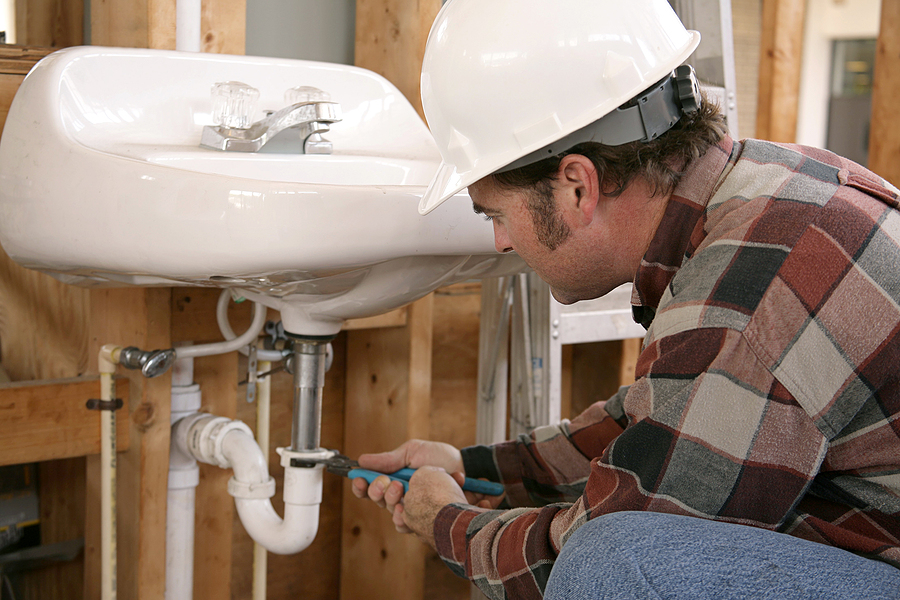Living in a tight space often means being innovative with all aspect of your life, which includes plumbing. Whether you’re facing with a tiny flat or a small house, water challenges can arise just like in larger houses. However, with the proper information and resources, even the most frequent plumbing issues can be handled efficiently. From learning how to shut off https://firstclassplumberswexford.com/ in an emergency to understanding when it is time to call a plumbing professional, this article will guide you through practical and smart answers to maintain your compact area functioning efficiently.
In the world of plumbing, problems like blocked drains or low water pressure can be particularly frustrating in limited spaces. Residents often ask about the most effective ways to maintain their water infrastructure while maximizing their small space. We’ll cover preventative measures, care tips, and even periodic checklists to ensure that your plumbing stays in excellent shape year-round. By understanding the specifics of small area waterworks, you will not only be prepared for emergencies but also be able to take wise decisions about potential improvements and renovations.
Common Water Problems & Resolutions
One of the most common plumbing problems property owners encounter is a clogged drain. This issue can arise from multiple factors such as fat growth, hair accumulation, or foreign objects. To tackle this, it’s essential to regularly use a drain cover to catch debris and occasionally flush drains with hot water or a mixture of soda bicarbonate and vinegar to prevent buildup. If the clog persists, a plumbing snake or plunger can offer a DIY solution before considering expert assistance.
Another common issue is low water pressure, which can affect daily activities like showering and cleaning dishes. The causes of low water pressure can vary from a hidden leak in the plumbing system to sediment buildup in your faucets and appliances. Homeowners can check for signs of leaks to resolve any underlying issues and clean aerators and showerheads to restore optimal flow. If the problem continues, consulting a plumber might be necessary to inspect the main supply line.

In conclusion, homeowners often experience issues concerning water heater maintenance. A lack of hot water or odd noises coming from the unit can indicate that it requires attention. Routine maintenance such as flushing the tank once a year can help prevent sediment buildup and prolong the life of the water heater. Additionally, checking the pressure relief valve and ensuring proper insulation around pipes can significantly enhance efficiency. Understanding these frequent plumbing challenges enables homeowners to take proactive measures, ensuring a more reliable plumbing system.
Upkeep Tips for Homeowners
Consistent maintenance is essential to stopping common plumbing problems in your residence. Commence by checking your water heater each six months, checking for leaks or rust. It's important to flush it once a year to clear out sediment buildup, which can impact efficiency. Additionally, check the pressure relief valve to verify it is operating correctly. Maintaining your water heater not only extends its lifespan while also helps dodge costly repairs down the line.
An additional important aspect of plumbing maintenance is your drainage system. To prevent clogged drains before they start, be careful about what goes down the sink. Steer clear of disposing of grease or hair-like materials that can create blockages. Consider using a hair catcher in your shower and cleaning gutters and outside drains often. Handling these small issues promptly can protect you from emergency plumbing situations later on.
In conclusion, seasonal checks can protect your plumbing during extreme weather conditions. In winter, take actions to avoid your pipes from freezing by covering them and permitting faucets drip during cold spells. In spring, conduct a thorough inspection for any signs of leaks. Keeping an eye on your plumbing year-round not only saves money but makes sure a smoothly running home environment.
Emergency Readiness and Plumbing Upgrades
Being ready for plumbing crises can save homeowners not only time but also substantial costs. A critical action is to know how to shut off your water in an emergency. Getting familiar yourself with the placement of your primary water cut-off valve can help you quickly deal with leaks or burst pipes, reducing fluid damage. Additionally, think about creating an emergency plumbing kit that includes necessary tools and supplies like tape, a spanner, and a torch, which makes it easier to handle small issues while you wait for a plumber.
Improving your plumbing system can also boost your home's resilience against crises. For example, putting in modern fixtures and pipe materials, such as PEX instead of classic copper, can provide more flexibility and resistance to bursting in freezing weather. On-demand water boilers are another improvement worthy considering, as they offer not only space savings but also energy efficiency, making sure that hot water is always on hand without the threat of drips associated with traditional tanks.
Lastly, periodic maintenance plays a vital role in preventing plumbing issues. Before winter arrives, it’s crucial to protect your pipes from freezing by insulating them and making sure that your home is prepared to handle low temperatures. In the springtime, conduct a thorough check-up as part of your spring plumbing checklist for every homeowner, checking for hidden leaks and clogs that could lead to major problems. By focusing on both preparedness and regular upgrades, homeowners can safeguard their plumbing systems against unexpected disasters.
